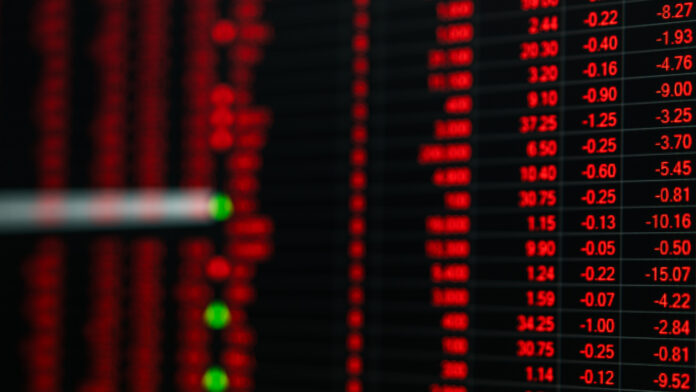
MINING stocks were flayed on the JSE as the market absorbed the potential damage to the global economy of US President Donald Trump’s tariffs, unveiled on April 2.
Shares in petrochemicals company Sasol fell 12.89% on Thursday owing to a hefty declines in oil prices. Brent crude was 5% lower at some $69.59 a barrel. US West Texas Intermediate crude futures were down $5.07, or 7.07%, at $66.64, according to Reuters.
Platinum group metal (PGM) stocks were struck particularly hard. Amplats, Implats and Northam Platinum fell 6.96%, 8.57% and 6.98% respectively. Diversified miners Anglo, BHP and Glencore fell 5.2%, 2.2% and 5.78% respectively.
The PGM miners are exempt from the 30% across-the-board tariffs slapped on South African exports by the US. However, the impact on car exports as well as car consumption in the US fuelled fears demand for metals in autocatalysis would decline.
“Despite the exclusions, we remain concerned about the adverse impact on business and consumer sentiment and the resultant feedthrough to business investment, consumer spending and ultimately global real GDP growth caused by this unprecedented upheaval in world trade,” said Hugo Pienaar, chief economist at the Minerals Council.
“Global growth coming under threat is bad news for the entire South African mining industry,” he said.
Reflecting the confusion in the market as to what the future holds for the global economy, commentators offered widely diverging views on how South Africa ought to respond.
A former Goldman Sachs banker said South Africa should “humble itself” to the US given the wide disparity in the two countries’ economies.
Commenting on the global impact of Trump’s reciprocal tariffs, Colin Coleman said South Africa was a “massive exporter” to the US. Yet seeing as the South African economy was not even half a trillion dollars compared to the $30 trillion US economy “we have to humble ourselves to the fact we are a small economy”.
Coleman was speaking at PGM Day, a conference, in which he also pointed towards a weakening of the Government of National Unity in South Africa amid a dispute between its principal members, the ANC and the DA over the national budget proposal.
“The survival of GNU is important in Washington. If it blows up it creates more vulnerability and we should watch for what we wish”, he said. A “smart pivot” could “thread the needle” but South Africa needed to “do some smart things”.
At the same time, South Africa was admired for its “sophisticated” financial system. The JSE traded at 2.5 times the size of South Africa’s GDP which is the highest liquidity to GDP ratio in the world, Coleman said. “That is why we are loved”, he added of the liquid trading system and currency, a proxy for emerging markets.
Coleman was previously CEO of Goldman Sachs for sub-Saharan Africa. He currently teaches at Columbia Business School in New York and a member of Atlantic Council, a think-tank based in Washington.
Former CEO of the Minerals Council Roger Baxter said South Africa ought to manage its relationship with China. “We have multiple trading partners so it’s important how we manage our relationship with China,” he said.
“We also need to keep our openness and improve our competitiveness,” he said. “We need to reduce red tape, and get the private sector involved in more key industries such as rail transportation,” he said referring a proposal the state concession bulk minerals rail routes to mining firms and other parties.
The Minerals Council’s Pienaar said, however, the elevated gold price would offer “a shield” to the local mining sector. The weakening of the rand, amid the problems with the GNU, would also make South African gold exports more competitive, provided unit costs did not play catch up too quickly, said Pienaar.










